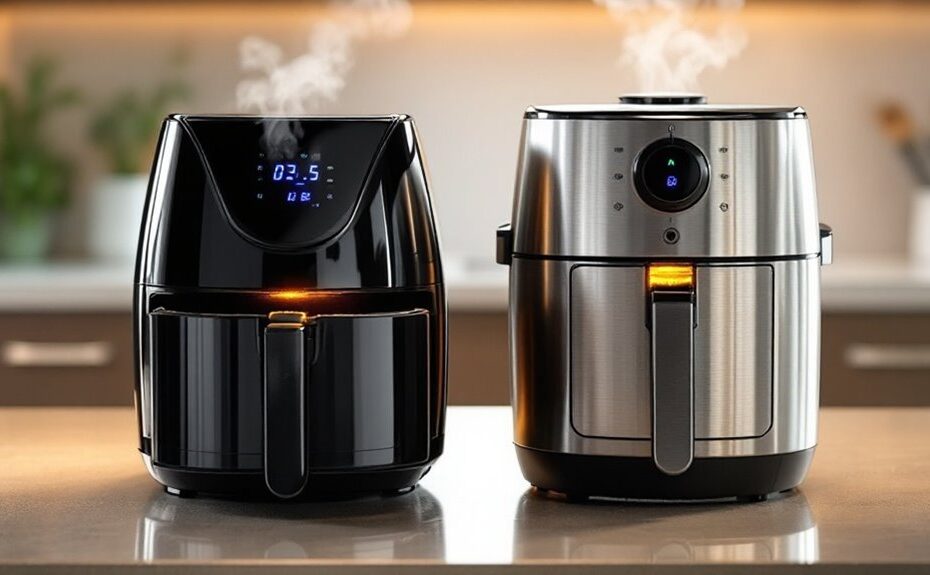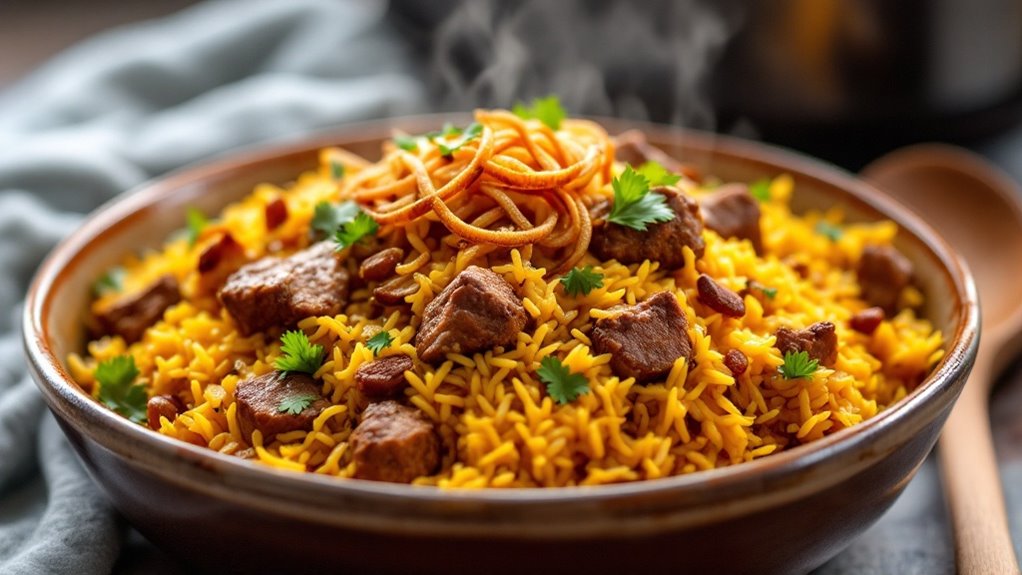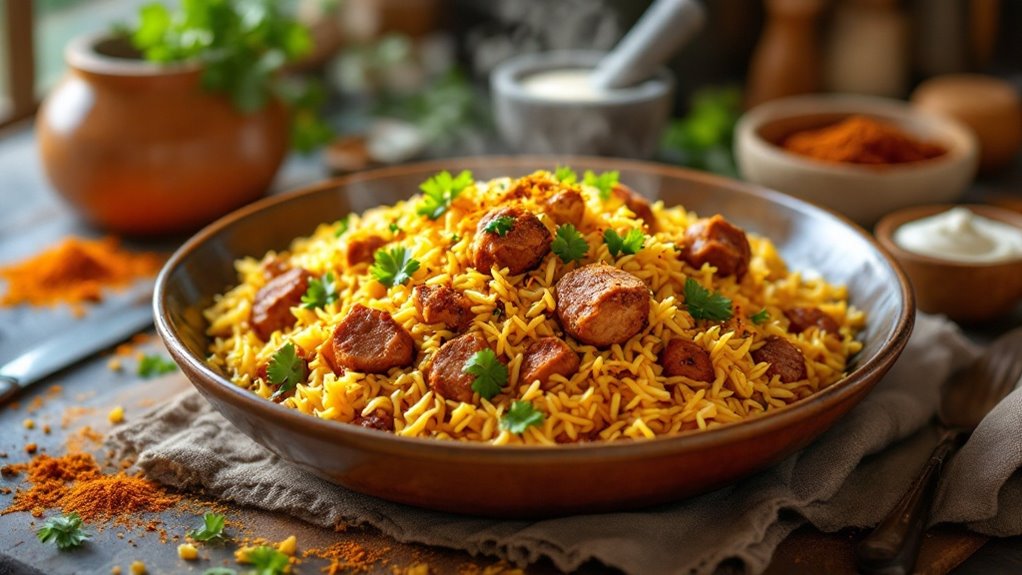When you're deciding between an air fryer and a deep fryer, you're choosing between two very different cooking methods. An air fryer circulates hot air to crisp your food with little to no oil, while a deep fryer immerses it in hot oil for that classic crunch. The results aren't just about texture—they also affect your health, cleanup routine, and even your energy bill. But which one truly delivers the flavor and convenience you're after? The answer might surprise you, especially when you consider how each appliance handles oil, time, and maintenance.
Key Takeaways
- Air fryers use rapid air circulation with minimal oil, while deep fryers require full oil immersion for cooking.
- Air fryers reduce fat content by up to 80%, offering a healthier alternative to deep fryers.
- Deep fryers produce a crispier, oil-infused texture, whereas air fryers yield a lighter, less greasy finish.
- Air fryers are easier to clean with less oil residue, while deep fryers require frequent oil draining and scrubbing.
- Air fryers are more energy-efficient, consuming less power and preheating faster compared to deep fryers.
Cooking Method and Technology
While both air fryers and deep fryers aim to deliver crispy, golden results, their cooking methods and underlying technologies differ substantially. An air fryer uses rapid air circulation, powered by a heating element and a high-speed fan, to evenly distribute heat around the food. This method guarantees consistent heat distribution, allowing for cooking precision with minimal oil. In contrast, a deep fryer submerges food in hot oil, relying on conduction to transfer heat directly. This process can lead to uneven cooking if the oil temperature isn't meticulously controlled. Air fryers excel in replicating fried textures with less mess, while deep fryers depend on oil immersion for their signature crunch. The choice hinges on your preference for heat distribution and cooking precision.
Oil Usage and Health Impact
When comparing oil usage and health impact, air fryers require substantially less oil—often just a light coating or none at all—to achieve a crispy texture, whereas deep fryers necessitate full submersion in oil. This stark difference in oil consumption directly influences the health benefits of each appliance. Air fryers reduce fat content by up to 80%, minimizing calorie intake and lowering the risk of cardiovascular issues associated with excessive oil use. Deep fryers, on the other hand, saturate food with oil, increasing unhealthy trans fats and calories. By leveraging rapid air circulation, air fryers replicate frying effects without compromising nutritional value, making them a healthier alternative. If you prioritize reduced oil consumption and enhanced health benefits, air fryers offer a clear advantage over traditional deep fryers.
Texture and Flavor Differences
Although both air fryers and deep fryers aim to deliver crispy, flavorful results, the texture and flavor profiles they produce differ substantially due to their cooking mechanisms. Deep fryers immerse food in hot oil, creating a uniformly crispy coating while sealing in moisture, resulting in a rich, indulgent flavor. Air fryers, however, rely on rapid air circulation to crisp the exterior, often yielding a drier texture with less moisture retention. The lack of oil in air frying can lead to a lighter, less greasy finish, but it may also produce a less pronounced crunch compared to deep frying. Additionally, deep-fried foods tend to have a deeper, oil-infused flavor, while air-fried foods retain more of their natural taste, with a slightly drier mouthfeel.
Cleaning and Maintenance Requirements
Since cleaning and maintenance are critical for guaranteeing the longevity and performance of cooking appliances, air fryers and deep fryers present distinct requirements. Air fryers typically require less cleaning frequency due to their oil-free cooking process. You'll need to wipe the basket, tray, and interior with a damp cloth after each use and occasionally wash removable parts in warm, soapy water. Avoid abrasive cleaners to prevent damaging non-stick coatings. Deep fryers, however, demand more rigorous maintenance tips. You must drain and filter oil after each use, clean the fryer basket thoroughly, and scrub the interior to remove grease buildup. Regularly inspect heating elements and replace oil as needed to prevent rancidity. Both appliances benefit from periodic deep cleaning to guarantee peak functionality and hygiene.
Energy Efficiency and Cooking Time
Air fryers generally consume less energy compared to deep fryers, as they rely on rapid air circulation to cook food rather than submerging it in heated oil. Their energy consumption typically ranges between 800-1500 watts, while deep fryers often require 1500-1800 watts to maintain high oil temperatures. Air fryers also excel in cooking speed, preheating in under 3 minutes and reducing overall cooking time by 20-30% compared to deep fryers. This efficiency stems from their compact design and targeted heat distribution. However, deep fryers may cook certain foods faster due to direct oil immersion, though this comes at the cost of higher energy use. For consistent, energy-efficient results, air fryers are the superior choice, balancing reduced energy consumption with competitive cooking speed.
Disclosure: As an Amazon Associate, I earn from qualifying purchases.



